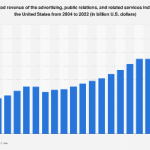Healthcare is shifting as know-how races ahead. U.S. regulators want to capture up, says Dr. Robert … [+]
In a matter of months, ChatGPT has radically altered our nation’s sights on artificial intelligence—uprooting outdated assumptions about AI’s limits and kicking the door large open for interesting new options.
One part of our lives confident to be touched by this rapid acceleration in technology is U.S. health care. But the extent to which tech will increase our nation’s wellness is dependent on regardless of whether regulators embrace the upcoming or cling stubbornly to the previous.
Why our minds stay in the previous
In the 1760s, Scottish inventor James Watt revolutionized the steam engine, marking an amazing leap in engineering. But Watt realized that if he needed to promote his innovation, he wanted to encourage prospective customers of its unprecedented ability. With a stroke of marketing genius, he started telling men and women that his steam engine could switch 10 cart-pulling horses. Individuals at time right away understood that a equipment with 10 “horsepower” will have to be a deserving investment. Watt’s gross sales took off. And his prolonged-given that-antiquated meaurement of power continues to be with us nowadays.
Even now, people today struggle to grasp the breakthrough prospective of revolutionary improvements. When confronted with a new and impressive technology, people today sense much more cozy with what they know. Relatively than embracing an entirely distinct state of mind, they remain trapped in the earlier, earning it challenging to harness the entire possible of upcoming chances.
Too normally, that is accurately how U.S. govt organizations go about regulating improvements in healthcare. In medication, the outcomes of making use of 20th-century assumptions to 21st-century innovations prove lethal.
Below are a few ways regulators do damage by failing to continue to keep up with the periods:
1. Devaluing ‘virtual visits’
Set up in 1973 to fight drug abuse, the Drug Enforcement Administration (DEA) now faces an opioid epidemic that promises extra than 100,000 life a year.
A single option to this deadly challenge, according to general public overall health advocates, combines fashionable information technological innovation with an efficient type of dependancy remedy.
Thanks to the Covid-19 General public Wellbeing Unexpected emergency (PHE) declaration, telehealth use skyrocketed all through the pandemic. Out of necessity, regulators calm prior telemedicine constraints, enabling much more clients to obtain healthcare expert services remotely although enabling physicians to prescribe controlled substances, such as buprenorphine, by way of movie visits.
For individuals battling drug addiction, buprenorphine is a “Goldilocks” medicine with just plenty of efficacy to reduce withdrawal nevertheless not plenty of to outcome in serious respiratory melancholy, overdose or death. Investigation from the Nationwide Institutes of Health and fitness (NIH) uncovered that buprenorphine improves retention in drug-treatment packages. It has assisted countless numbers of folks reclaim their lives.
But since this opiate produces slight euphoria, drug officials stress it could be abused and that telemedicine prescribing will make it a lot easier for bad actors to push buprenorphine on to the black market. Now with the PHE declaration set to expire, the DEA has laid out programs to limit telehealth prescribing of buprenorphine.
The proposed rules would let medical doctors prescribe a 30-day class of the drug by using telehealth, but would mandate an in-human being pay a visit to with a medical doctor for any renewals. The agency thinks this will “prevent the on the net overprescribing of managed drugs that can bring about damage.”
The DEA’s assumption that an in-particular person visit is safer and less corruptible than a digital go to is out-of-date and contradicted by medical analysis. A recent NIH examine, for illustration, located that overdose fatalities involving buprenorphine did not proportionally boost during the pandemic. Likewise, a Harvard research uncovered that telemedicine is as successful as in-man or woman treatment for opioid use ailment.
Of system, regulators want to keep an eye on the prescribing frequency of managed substances and carry out audits to weed out fraud. Additionally, they should demand from customers that prescribing medical professionals get right instruction and document their client-education attempts regarding health-related pitfalls.
But these prerequisites need to use to all clinicians, irrespective of no matter whether the client is bodily existing. After all, abuses can happen as quickly and quickly in person as on-line.
The DEA wants to shift its attitude into the 21st century mainly because our nation’s out-of-date method to dependancy remedy isn’t doing the job. More than 100,000 deaths a yr demonstrate it.
2. Limiting an unrestrainable new know-how
Technologists forecast that generative AI, like ChatGPT, will rework American life, substantially altering our economic system and workforce. I’m confident it also will completely transform medication, giving patients bigger (a) access to clinical information and (b) manage around their possess health and fitness.
So much, the amount of progress in generative AI has been staggering. Just months ago, the unique model of ChatGPT handed the U.S. clinical licensing test, but barely. Weeks in the past, Google’s Med-PaLM 2 obtained an impressive 85% on the exact exam, putting it in the realm of qualified physicians.
With terrific technological capability will come great anxiety, especially from U.S. regulators. At the Health Datapalooza convention in February, Meals and Drug Administration (Food and drug administration) Commissioner Robert M. Califf emphasised his problem when he pointed out that ChatGPT and related systems can either assist or exacerbate the problem of supporting sufferers make knowledgeable well being selections.
Apprehensive comments also arrived from Federal Trade Commission, thanks in section to a letter signed by billionaires like Elon Musk and Steve Wozniak. They posited that the new know-how “poses profound risks to society and humanity.” In reaction, FTC chair Lina Khan pledged to fork out near focus to the expanding AI business.
Makes an attempt to regulate generative AI will practically undoubtedly take place and very likely soon. But companies will battle to execute it.
To day, U.S. regulators have evaluated hundreds of AI programs as healthcare devices or “digital therapeutics.” In 2022, for instance, Apple received premarket clearance from the Food and drug administration for a new smartwatch feature that allows people know if their heart rhythm shows signals of atrial fibrillation (AFib). For every single AI product that undergoes Food and drug administration scrutiny, the company tests the embedded algorithms for performance and basic safety, similar to a medicine.
ChatGPT is distinctive. It is not a healthcare gadget or digital remedy programmed to handle a distinct or measurable health care problem. And it does not consist of a uncomplicated algorithm that regulators can examine for efficacy and security. The reality is that any GPT-4 user these days can sort in a question and obtain comprehensive health-related advice in seconds. ChatGPT is a broad facilitator of information and facts, not a narrowly concentrated, scientific software. For that reason, it defies the sorts of examination regulators usually utilize.
In that way, ChatGPT is comparable to the telephone. Regulators can assess the safety of smartphones, measuring how considerably electromagnetic radiation it presents off or irrespective of whether the unit, itself, poses a fireplace hazard. But they can’t control the basic safety of how persons use it. Friends can and typically do give each individual other terrible advice by phone.
Hence, aside from blocking ChatGPT outright, there is no way to stop men and women from asking it for a analysis, medicine suggestion or help with determining on choice health-related treatment plans. And while the technology has been temporarily banned in Italy, which is unlikely to happen in the United States.
If we want to ensure the protection of ChatGPT, enhance wellbeing and save lives, authorities companies should really concentration on educating People in america on this technological know-how fairly than seeking to limit its utilization.
3. Stopping medical professionals from aiding a lot more men and women
Health professionals can apply for a health care license in any point out, but the approach is time-consuming and laborious. As a end result, most medical professionals are licensed only wherever they stay. That deprives sufferers in the other 49 states entry to their healthcare skills.
The explanation for this strategy dates back again 240 many years. When the Bill of Rights handed in 1791, the practice of medicine varied greatly by geography. So, states were being granted the correct to license medical professionals by their point out boards.
In 1910, the Flexner report highlighted prevalent failures of health care instruction and advised a standard curriculum for all medical professionals. This course of action of standardization culminated in 1992 when all U.S. physicians were being demanded to just take and pass a set of nationwide health-related tests. And nonetheless, 30 many years later, absolutely experienced and board-certified doctors still have to apply for a health-related license in every state in which they wish to practice drugs. With out a second license, a health care provider in Chicago cannot give care to a patient throughout a state border in Indiana, even if separated by mere miles.
The PHE declaration did let health professionals to offer virtual care to individuals in other states. Even so, with that policy expiring in Could, medical professionals will once again experience overly restrictive rules held over from hundreds of years earlier.
Provided the improvements in medicine, the availability of technologies and escalating scarcity of experienced clinicians, these polices are illogical and problematic. Heart assaults, strokes and cancer know no geographic boundaries. With air vacation, individuals can agreement health care health problems far from household. Regulators could securely carry out a widespread national licensing process—assuming states would acknowledge it and grant a clinical license to any medical professional with no a record of specialist impropriety.
But that is not likely to materialize. The cause is money. Licensing costs help point out healthcare boards. And state-based limits limit levels of competition from out of state, allowing area providers to generate up charges.
To address healthcare’s quality, obtain and affordability issues, we require to realize economies of scale. That would be greatest completed by letting all medical professionals in the U.S. to sign up for just one care-shipping pool, somewhat than retaining 50 separate types.
Carrying out so would allow for a countrywide psychological-well being support, providing men and women in underserved regions obtain to skilled therapists and serving to lower the 46,000 suicides that take place in America every single 12 months.
Regulators will need to capture up
Medication is a complicated profession in which problems get rid of individuals. Which is why we require healthcare polices. Medical professionals and nurses need to have to be properly educated, so that daily life-threatening remedies just cannot tumble into the fingers of individuals who will misuse them.
But when out-of-date imagining potential customers to deaths from drug overdoses, helps prevent clients from improving upon their have health and limits obtain to the nation’s most effective professional medical skills, regulators have to have to figure out the harm they are accomplishing.
Health care is transforming as technology races forward. Regulators will need to catch up.
connection











More Stories
ASL interpreter bridges healthcare – Mayo Clinic Health System
Why Healthcare Interoperability Shouldn’t Force Us To Choose Sides
Ontario’s health spending lowest in Canada in 2022-2023: report